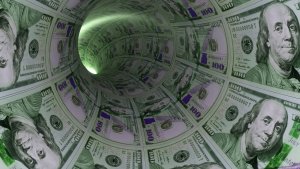What does sexual harassment have to do with the economy?
More than you think! That’s why at the recent ASSA Conference, hosted by the American Economics Association, I presented a paper seeking to convince economists that it’s time they turned their attention to the subject.
Beyond the obvious costs of lawsuits and settlements to businesses and organizations, indirect costs of problems like low morale, employee turnover, reduced job performance, and absenteeism due to harassment create a drain on the economy.
Workers pay, too. In the post-Weinstein moment, we’re considering the costs to targets themselves and learning more about what happens to those who run a gauntlet of sexual harassment across the socio-economic spectrum, from farm work to finance. We know that women who work in the service industry, especially minority women, are particularly vulnerable; that certain risk factors tell us which environments are more likely to produce harassment; and that and that high-level women in male-dominated fields may be particular targets.
But we need to know a lot more — not least because targets who pursue legal action are asked to show measurable harm, which requires reliable data.
Trying to get the big picture can mean dealing with a puzzle of anecdotes, inferences, and studies that are not up-to-date. Researchers face such challenges as obtaining true rates of the problem; dealing with variations in impact; comparing the potential differences in losses among industries; the conflation of broader gender discrimination and sexual harassment; and the problem of parsing cases in which multiple forms of discrimination are at play, such as sexual harassment together with racial discrimination.
The good news is that the current moment provides a golden opportunity for economists and other social scientists to help answer questions like:
- Are women who reject harassment pushed into lower-earning jobs?
- What role does sexual harassment play in the gender wage gap?
- How does the economic performance of firms with high rates of sexual harassment compare with those with lower rates?
- What are the effects of harassment, short-term and long-term, on wages, career opportunities, and financial security?
Going forward, economic researchers will have the benefit of new information that has been revealed since the launch of the #MeToo movement and can take advantage of a heightened awareness. They will be much more likely to receive support, funding, attention, and outlets for their work, which will help us to chart a course forward—and rectify a great social wrong.






